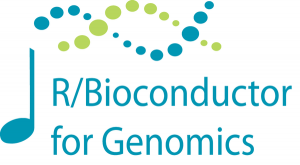 Boston R/Bioconductor for Genomics Meetup
Boston R/Bioconductor for Genomics Meetup
Matrix factorization & network inference approaches for multi-omics data fusion
Feb 28th | 5:30pm-7:30pm | Registration
Location:
Yawkey Center for Cancer Care YCCC, Room 306/307
450 Brookline Ave, Boston, MA 02215
The Group:
Boston R/Bioconductor for Genomics group meet regularly to discuss topics related to the application and development of R and Bioconductor workflows and packages for data analysis and visualization of genomics data.
Details of the event:
Nathalie Pochet, Ph.D.
Assistant Professor, Department of Neurology, Harvard Medical School
Associate Member, Cell Circuits Program, Broad Institute of MIT and Harvard
Associate Scientist, Ann Romney Center for Neurologic Diseases, Brigham and Women’s Hospital
AMARETTO: a regulatory network inference tool for multi-omics data fusion across systems and diseases
The availability of increasing volumes of multi-omics profiles from model systems to patient studies promises to improve our understanding of the regulatory mechanisms underlying human diseases. The main challenges are to integrate these multiple levels of omics data and to translate them across in vitro and in vivo systems. We recently developed the AMARETTO and Community-AMARETTO algorithms that learn regulatory networks shared and distinct across biological systems with a broad range of applications, from diagnostic subtyping to driver and drug discovery in studies of human disease. The AMARETTO framework is available via GitHub and as user-friendly tools in Bioconductor and GenePattern.
Aedin Culhane, Ph.D
Senior Research Scientist
Dept of Data Sciences, Dana-Farber Cancer Institute,
Dept of Biostatistics, Harvard TH Chan School of Public Health
moGSA, Integrative multi’ omics single sample gene set analysis
Gene set analysis (GSA) has become an indispensable step in the interpretation of large scale omics data through summarizing individual molecular measurements to more interpretable pathways or gene sets. However, current GSA methods are limited to the analysis of single omics data. We describe a new computation method, multi-omics gene set analysis (MOGSA), a multivariate single sample gene-set analysis method that integrates multiple experimental and molecular data types measured over the same set of samples. MOGSA is available in the Bioconductor R package “mogsa”. A preprint describing MOGSA is available at https://www.biorxiv.org/content/10.1101/046904v2



